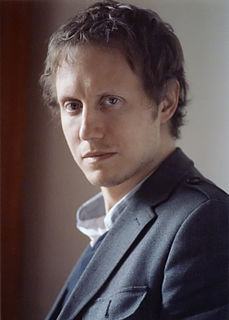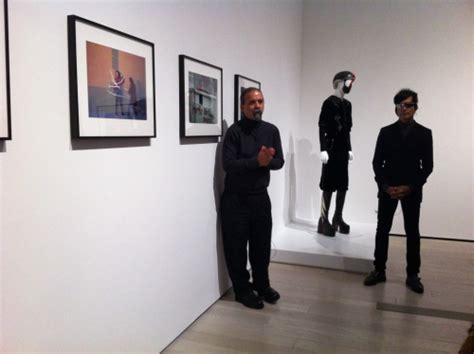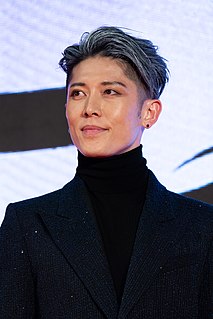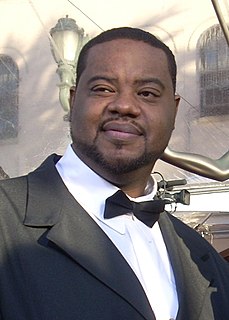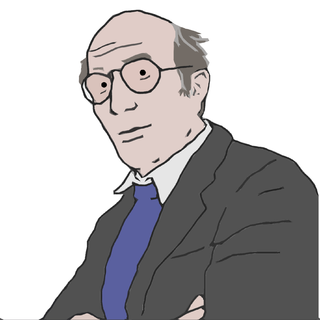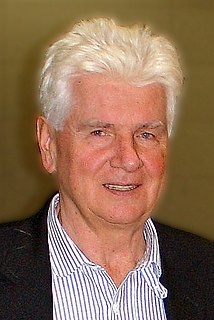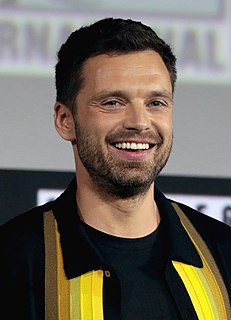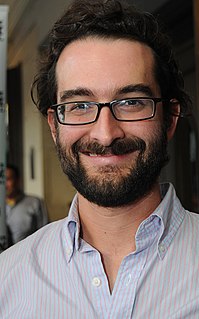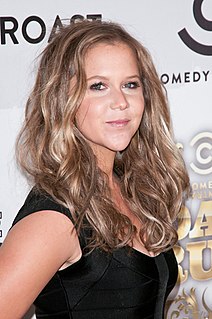A Quote by Cedric Bixler-Zavala
The 20-year-old version of me had all this energy, and wanted to be obnoxious with his art and wanted to communicate even though he didn't know what he wanted to communicate.
Related Quotes
Where my earlier works, what sets them apart is that I didn't need approval and I didn't need permission from anyone because I wasn't being paid. So, to me, I was allowed the freedom, the total freedom to just communicate how I wanted to communicate and my whole level of perspective was to communicate to the barrios, communicate to the gangs and communicate to the people that frequent the thoroughfares that were populated by these gangs and by this life style.
When I was at art school, a lot of art education is about art being a means of self-expression, and as an 18-year-old I didn't know if I had a huge amount I wanted to express. It was a big moment when I decided I wanted to shift the emphasis or the intention of my art from something I disgorged myself upon and something that actually fed me or made me see the world or understand the world.
I went to New York. I had a dream. I wanted to be a big star, I didn’t know anybody, I wanted to dance, I wanted to sing, I wanted to do all those things, I wanted to make people happy, I wanted to be famous, I wanted everybody to love me. I wanted to be a star. I worked really hard, and my dream came true.
but it wasn't just about my feelings. The more I got to know you, the more I was certain that you'd do whatever it took to provide for your family. That was important to me. You have to understand that back then, a lot of people our age wanted to change the world. Even though it's a noble idea, I knew I wanted something more traditional. I wanted a family like my parents had, and I wanted to concentrate on my little corner of the world. I wanted someone who wanted to marry a wife and a mother, and someone who would respect my choice.
What I never wanted in art - and why I probably didn't belong in art - was that I never wanted viewers. I think the basic condition of art is the viewer: The viewer is here, the art is there. So the viewer is in a position of desire and frustration. There were those Do Not Touch signs in a museum that are saying that the art is more expensive than the people. But I wanted users and a habitat. I don't know if I would have used those words then, but I wanted inhabitants, participants. I wanted an interaction.
I wanted to walk over there. I wanted to curl up beside him, lean against him, talk to him. I wanted to know what he was thinking. I wanted to tell him everything would be okay. And I wanted him to tell me the same thing. I didn't care if it was true or not- I just wanted to say it. To hear it, to feel his arms around me, hear the rumble of his words, that deep chuckle that made me pulse race
When I was at school when I was 16, I was in a quandary because I didn't know whether I wanted to join the army - I had this terrible desire to be a tank driver in the Royal Tank Regiment, genuinely - or whether I wanted to go to art college because half of me wanted to be in the army, and the other half of me wanted to be a surrealist.

